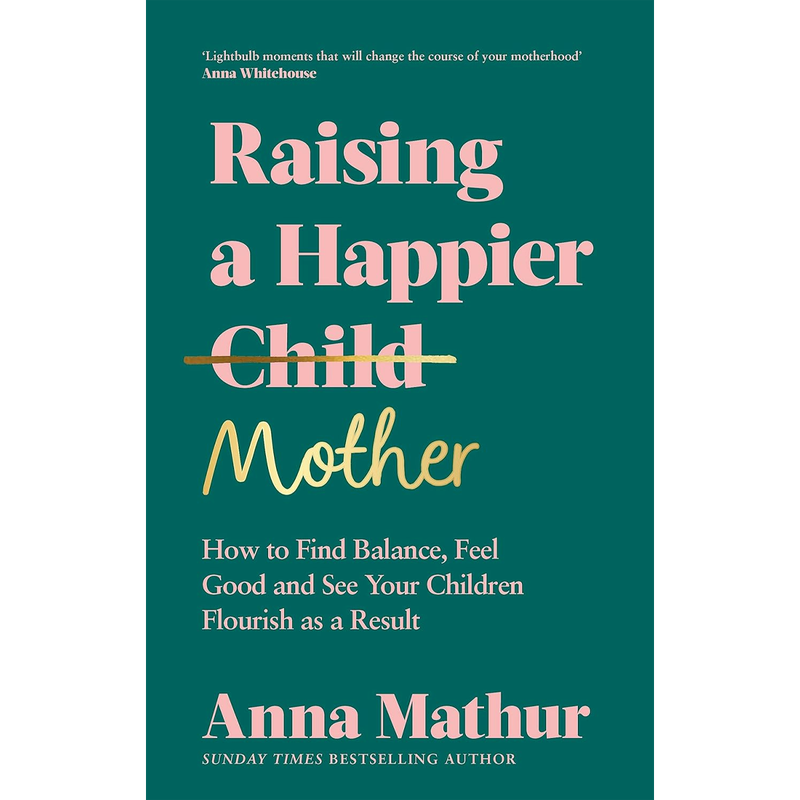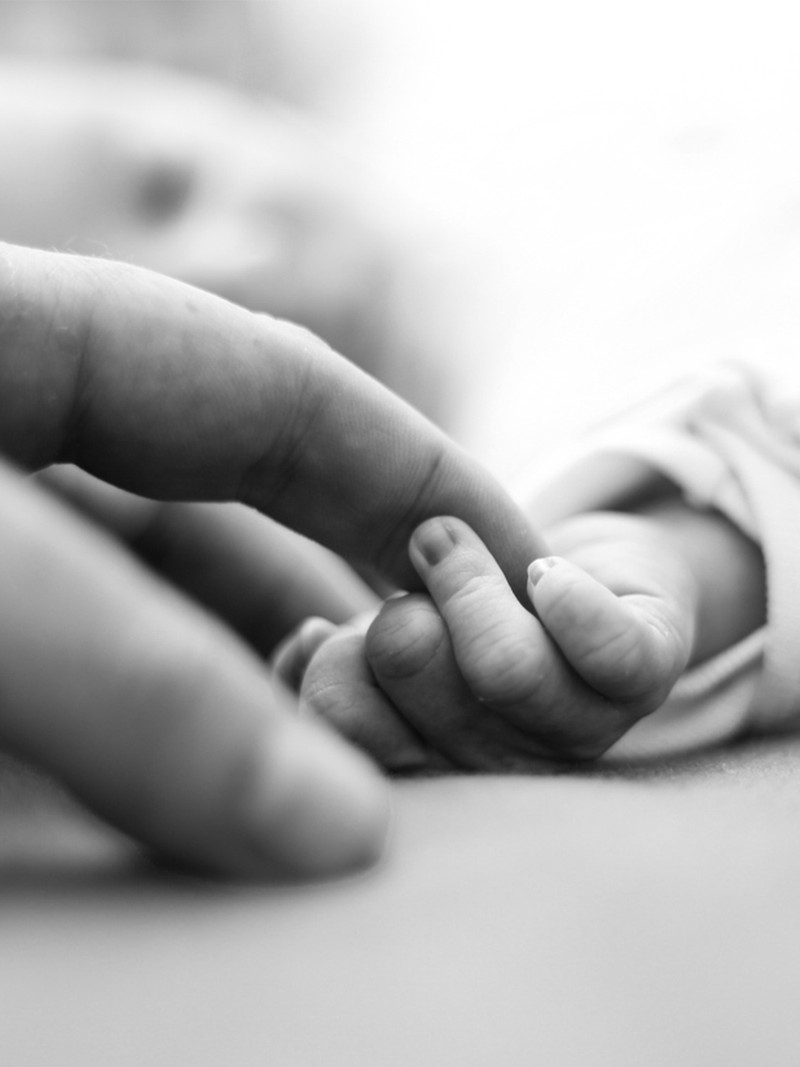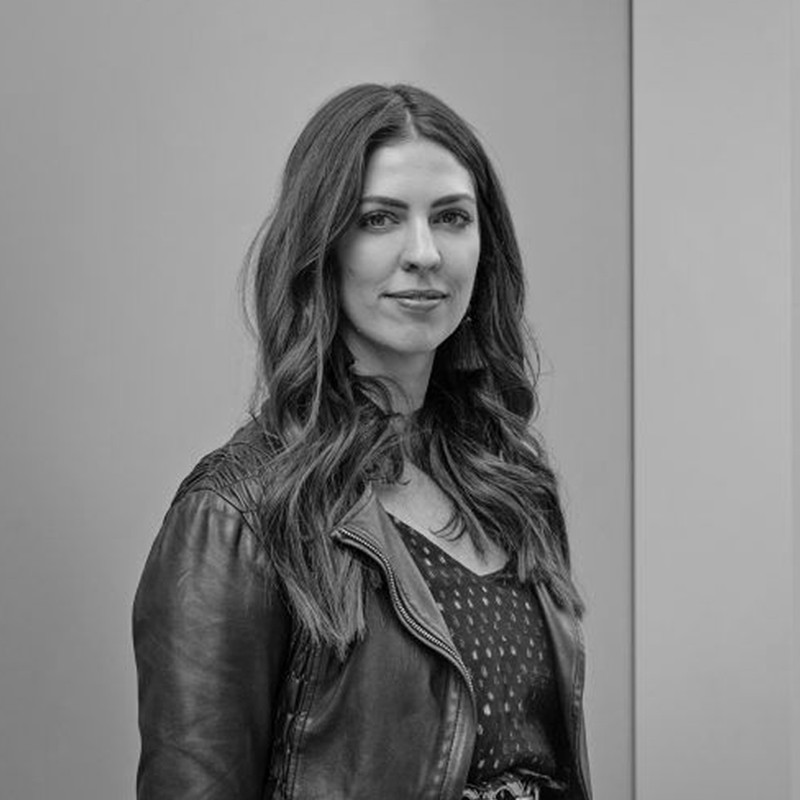Lessons In Parenting: Anna Mathur
Becoming a mother has been the biggest lesson of my life
I have three children – two boys of nine and seven, and a daughter aged five. Before I had them, I worked as a psychotherapist in classic clinical settings. I took standard maternity leave with my first and returned to work part-time, by which point I was already pregnant with my second. That was an anxious pregnancy, and I started sharing a combination of my experience of motherhood and my clinical knowledge on social media.
A challenging pregnancy doesn’t have to mean a challenging labour
My first pregnancy was textbook, and I had a straightforward water birth. My second pregnancy was very different. I had severe morning sickness for the first six months and at 12 weeks I was rushed to A&E with appendicitis – it was surreal being told not to drink alcohol, while being put on morphine! It was tough to go through all that while having a toddler to care for, but luckily at the end of it I had another straightforward water birth. After all this, I was very anxious about my third pregnancy, especially about experiencing the sickness again, and how to balance two young children and a job, but I took time to mentally prepare myself and I managed the sickness well with medication. Despite being diagnosed with coeliac disease during the second trimester, it ended happily with another water birth.
The labours might have been the same, but the recoveries have not
While all my labours have been in birthing pools with no complications, the recovery for each was different. With my first, I was wheeling a pram around Sainsbury’s the next day, make-up on, showing the world I could do it all! My second didn’t go that way. He had undiagnosed reflux for six months. That meant for six months neither of us slept more than 40 minutes a night. I felt so horrendous. The cracks were showing, but I didn’t let anyone see them.
Despite my training, I didn’t realise I had post-natal depression
I was hallucinating. I couldn’t string a sentence together, let alone diagnose myself. Because of my perfectionist tendencies, I didn’t want people to know I was struggling, I didn’t even want to admit it to myself. Eventually I asked my husband for help. He had wanted to help before then, but I thought that, by asking him for help, I was failing in my role a mother. One night, when I was exhausted and broken, I asked him to sit with me while our baby cried. Then he took over while I got some sleep. After that, it was teamwork that got us through. Through my vulnerability, we connected.
It’s okay to ask for help
I’d always been a helper and a supporter of others, but at this point I realised I needed to let in my friends and my family, and be honest with the medics I saw. It’s so humbling when you feel horrendous enough to ask for help, but once I let people know the truth, I felt more comfortable being vulnerable. When you are open about having a rough time, and you’re willing to say it like it is, you shift from the perfectionist sphere to a new sphere of ‘this is just how it is’ and it’s unburdening.
Be honest
With my third child, everything changed. Whereas with my oldest son I was completely together, and with my second I was broken, with my daughter I reframed the whole thing. I remember writing a text to a friend which said, ‘Don’t come over, I’m a mess.’ Then I rewrote it, deleting the ‘Don’t’, so it said, ‘Come over, I’m a mess!’ I wanted them alongside me in the chaos and – guess what – my friend was relieved. She was so happy to be allowed in to support me.
Meeting your baby for the first time is like no other encounter you’ll ever have
When I held my first born, I was utterly in love – it was the storybook rush of love. But then, having spent a year and a half really getting to know him, when I met his brother, I felt I didn’t know him. Of course I loved him, but because I knew his brother so acutely well, and he was so unsettled, it took longer for the bond to grow. With my third, I felt so privileged to have a daughter and I was mentally in a better place.
Babies and routine… It’s controversial!
So many mums beat themselves up about this. We want to feed on demand and respond to our baby’s needs, but the lack of structure can be destabilising. We can’t relax when they wake up from a nap ten minutes early, or accept an invitation to go out if it clashes with their nap time. Why? Because we are anchored by routine. Humans are creatures of rhythm, be it sunrise and sunset, or hormones! Modern life doesn't respect that. To cope with ‘routine anxiety’, I suggest finding calm among the uncertainty with tailor-made tools. For example, soothe yourself when you feel stressed and anxious by implementing rituals. In the evening, you might gift yourself a facial massage when you take your make-up off. In the morning, you could stick to the order in which you do things, to give you a solid framework in your day. This meets our human need for routine, which is comforting.
Listen to your instincts
When I suspected my son had reflux, I took him to many appointments, but he was always upright in the carrier, so he wasn’t displaying many symptoms (when you have a baby with reflux, you quickly realise that they are more comfortable upright). They never saw him unsettled. It was only during the final appointment when he was out of the carrier and displaying all the signs that they saw how bad it was. That day everything changed. Finally, I had validation that something was wrong. Then he was prescribed medication, and his gut was naturally maturing, as by then he was six months. For all that time, I thought it was me – how I was feeding him, what I was doing wrong – so I was full of self-blame. After that, he slept, I slept, and it was life changing. I felt like I had emerged from a dark tunnel and the lights had come back on.
Toddlers make you slow down
This phase gets a bad rap, but I love watching their characters grow, observing their nuances, and seeing the beginnings of their personality traits. Because they’re fascinated by everything around them, that wonder and joy they find in the little things passes onto you. It makes you slow down and look at the world through their eyes.
Don’t force a sibling connection
I’ve learnt this is something you can’t push or rush. When a new baby comes into the family unit, we have an expectation that our older child will automatically love them and be happy. But it can be very hard for them – and you. Some children will embrace the older sibling role and want to read to the baby or be your helper and get involved with nappy changes and so on. Others don’t want the responsibility. It’s easy to slip into thinking they’re older than they are when a newborn arrives, but they may still feel like your baby, and they may like to be treated that way too. While the family may have changed overnight, they haven’t! You may really miss your other child and the time you used to spend together, and they will miss not having you all to themselves.
The goal posts are always moving
As your relationship with your child changes, it is possible to feel happy and sad at the same time. I think a lot of motherhood is about letting go. One of my children is autistic. It’s an experience I wasn’t knowledgeable about or equipped for. In motherhood, I’ve had to go beyond myself to understand what my version of motherhood is.
Let go of perfectionism
This has been a hard lesson for me. Perfectionism doesn’t translate well into motherhood. It makes you constantly feel like a failure. I’ve accepted now that ‘good enough is good enough’ and it’s changed my life for the better. I’m also a better parent for not pressing that perfectionism onto them. My post-natal depression eventually revealed my masking behaviour. When I dropped the mask, I realised I needed people. The helper needs to be helped. That’s not failure. Accepting you can have mixed emotions is also important. If I feel overwhelmed or frustrated or angry, it isn’t related to how much I love them.
Use your labour breathing
You know the special breathing method you learnt during pregnancy? It’s a life tool. When you breathe that way, it tells your body that you’re safe. Rest also helps your body learn it’s safe. You need to take in as much as you give out. You can do this by slowing down your movement. If you rush around the house, you’re telling your body it’s being chased. Scrolling on your phone is stressful – your mind doesn’t know what it’s about to see. Rest with a book instead.
Never let mother’s guilt go unaddressed
Use it as an opportunity to act. If something doesn’t go well, I ask myself, what do I need? What can we do? The guilt is there to prompt you, not to shame you. Guilt is rarely justified because it’s rarely your fault. If you had a tricky, traumatic birth or your baby isn’t feeding well, it’s not your fault. If you lost it with the kids, take action. Go for a walk, rant to a friend, think about whether your standards are too high. I’ve learnt to let go and be kind to myself, and it’s been the most important lesson of my life.
Anna’s fourth book, Raising A Happier Mother, is out now. Follow her @AnnaMathur and visit AnnaMathur.com to find out more about her toolkit.

DISCLAIMER: We endeavour to always credit the correct original source of every image we use. If you think a credit may be incorrect, please contact us at info@sheerluxe.com.
All products on this page have been selected by our editorial team, however we may make commission on some products.



/https%3A%2F%2Fsheerluxe.com%2Fsites%2Fsheerluxe%2Ffiles%2Fwebsite-images%2F2025%2F04%2Fnew-parenting-background-image.jpg?itok=au3AjSlw)